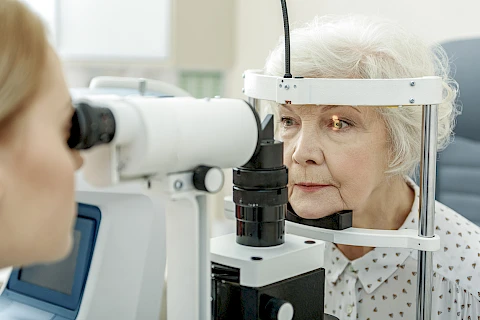
As our loved ones age, their vision can often decline, making routine activities challenging and reducing their quality of life. This underscores the importance of regular eye checks for seniors. If you're a caregiver entrusted with a senior's health and well-being, you'll want to learn more about eye exams, recognizing signs of deteriorating vision, and some practical advice for those times when seniors resist these necessary appointments.
Why Seniors Need Regular Eye Checks
Regular eye checks for seniors are more than just about correcting vision. They are critical in the early detection of eye diseases. Age-related macular degeneration, glaucoma, cataracts, and diabetic retinopathy are some common eye conditions that can affect seniors. If left untreated, these conditions can cause significant vision loss and, in some cases, blindness. Regular eye checks can help detect these conditions in their early stages when they are most treatable.
How Often Should Seniors Have Their Eyes Checked?
According to the American Optometric Association, seniors aged 60 and older should have their eyes checked yearly or as their optometrist recommends. The frequency of the eye checks can also depend on a few other factors. If a senior has an existing eye condition, they may need to have their eyes checked more frequently. The risk of developing eye conditions increases if a senior has other health issues like diabetes or high blood pressure, so seniors with these conditions may need more regular checks.
Signs That a Senior's Vision is Getting Worse
Recognizing the signs of deteriorating vision can be challenging, especially if gradual changes occur. Some common indications can include:
- Difficulty reading or seeing close objects
- Frequently bumping into things or falling
- Finding it hard to see clearly at night
- Increased sensitivity to light.
Vision changes can also manifest as physical symptoms such as redness, frequent eye rubbing, or squinting. Caregivers should monitor these signs and arrange for an eye check if they notice any changes.
Handling Resistance to Eye Check Appointments
It's not uncommon for some seniors to resist going for eye checks. The thought of an eye exam can be daunting, or they might believe their vision is fine and they don't need an appointment. Caregivers should communicate the benefits of regular eye checks and reassure them that eye exams are routine to help maintain their vision and overall quality of life.
If a senior resists attending an appointment, try making the experience more comfortable and less intimidating. Schedule the appointment at a time of day when they are most alert and comfortable or accompany them to provide emotional support.
Is It Time For a Senior Eye Exam?
Caring for a loved one in their senior years involves vigilant monitoring of their health conditions, and eye health is no exception. Caregivers play an essential role in ensuring these regular checks are conducted and advocating for the importance of eye health for their elderly charges.
As a trusted senior care provider in the Artesia, Cerritos, La Palma, La Mirada, and Lakewood areas, Senior Helpers invites you to contact us today. We're committed to assisting you in navigating the healthcare needs of your loved ones. Let us help you ensure those in your care maintain the best possible quality of life, with a clear vision for wonderful experiences.